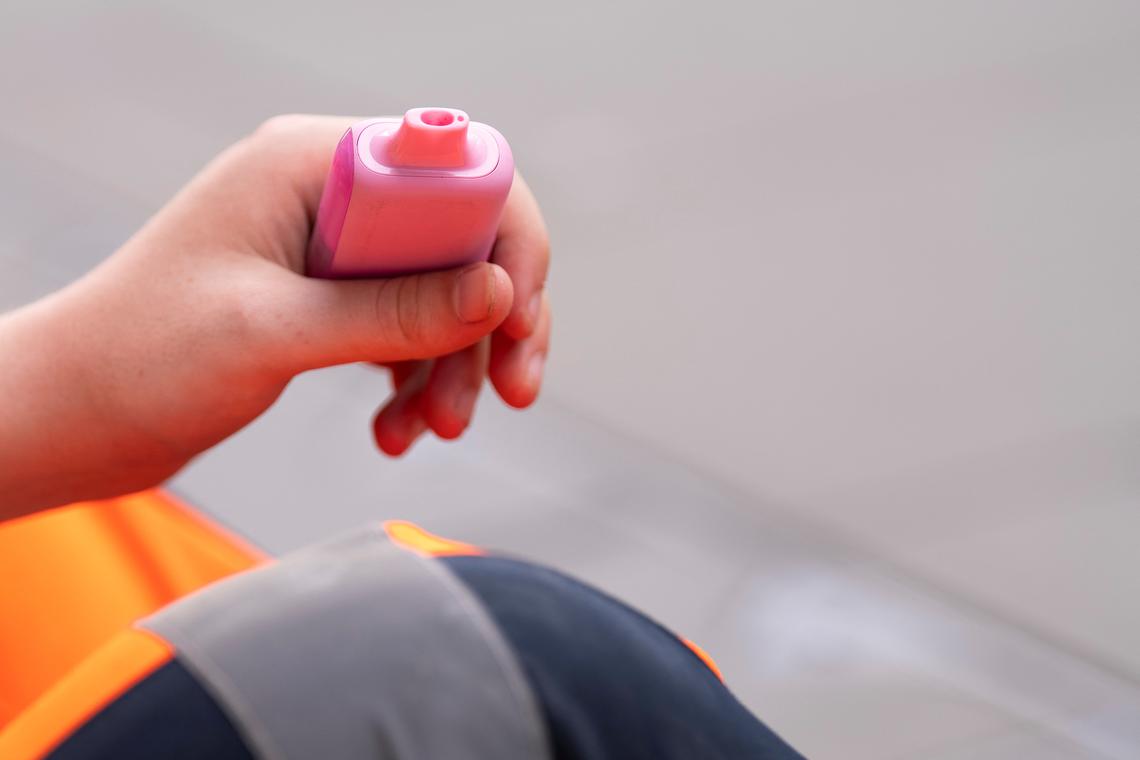Malaysian health experts, activists suggest following Singapore’s tough stance on vaping
Sign up now: Get insights on the biggest stories in Malaysia

According to a survey conducted by the Consumers' Association of Penang, the use of vape and e-cigarettes among students and youth in Malaysia is increasing.
PHOTO: REUTERS
Follow topic:
PETALING JAYA - Malaysia should look into Singapore’s model of treating vaping as a drug offence and consider imposing tougher penalties to curb its rising use, particularly among teenagers, said health experts and activists.
Senior education officer N.V. Subbarow from the Consumers’ Association of Penang (CAP) said the country should look at the issue similar to how Singapore is handling it.
“In our country, most vapes contain addictive and dangerous ingredients, including the dangerous etomidate. We should not treat these problems as very light,” he said when contacted on Aug 20.
On Aug 17, Singapore said it will toughen its stance on vaping,
Vaping has been banned in Singapore since 2018 and under current laws, possessing, using or buying vapes carries a maximum fine of $2,000.
Etomidate, currently under Singapore’s Poisons Act, will soon be listed as a Class C drug, subjecting vape users to rehabilitation programmes, similar to those for drug abusers.
Doctors typically inject etomidate to induce sedation, but misusing it can cause hallucinations and permanent organ failure.
On July 30, Malaysia’s Health Minister Dzulkefly Ahmad said a thorough study will be conducted before any decision is made to list etomidate as a dangerous drug under the law.
Datuk Seri Dzulkefly added that the ministry took heed of the recent proposal to list the substance under the Dangerous Drugs Act 1952, but would not make a hasty decision without proper evidence.
Mr Subbarow revealed that according to a survey conducted by CAP, the number of cigarette smokers in Malaysia is decreasing, and the use of vape and e-cigarettes among students and youth is increasing day by day.
“This includes young females who are taking up vaping. They do this without any fear. They reply it’s their choice and equality rights,” said Mr Subbarow.
He added that it is time for lawmakers to voice out the dangers of drugs in vape liquids and take stern action on it.
Ikram Health Malaysia president Mohd Afiq Mohd Nor also agreed, saying that Singapore has a strong and consistent stance on this issue.
He suggested that, while waiting for the government to make a decision on banning the substance, the authorities should fully enforce the Control of Smoking Products for Public Health Act in Malaysia.
“Consistency is key before the problem gets worse,” he said.
Malaysian Pharmacists Society (MPS) president Amrahi Buang said his organisation has raised this concern since 2015.
“MPS has made a stand on zero tolerance on vape in our National Pharmacists Convention 2025 held recently on July 25,” he said.
“We need to protect the rakyat (citizens) and the nation from this menace. The threats are really harmful,” he added.
Public health medicine specialist Sharifa Ezat Wan Puteh pointed out that a lot of places have banned vaping but do not deem vape users as drug users.
These include Thailand, Hong Kong, Brunei and India, but with different standardisation.
Mr Samsul Kamal Ariffin, president of the Malaysian Organisation of Vape Entities, said any move to follow Singapore must be done based on scientific facts and not perception.
Senior lawyer Mohamed Haniff Khatri Abdulla said a lot of steps needed to be done if Malaysia wants to follow the same steps as Singapore on this issue.
“There must be various studies to be done first, to ascertain all type of vapes, and whether the substances used by vape contain drug substances or otherwise,” he said.
The relevant authorities must also carry out various tests to determine the legal substances that can or cannot be used as well as controlled, Mr Mohamed Haniff said.
Mr Suhaizan Kayat, chairman of the Parliamentary Special Select Committee on Health, said one possible way would be to introduce certain amendments to the Control of Smoking Products for Public Health Act 2024 in order to ban vaping. THE STAR/ ASIA NEWS NETWORK

